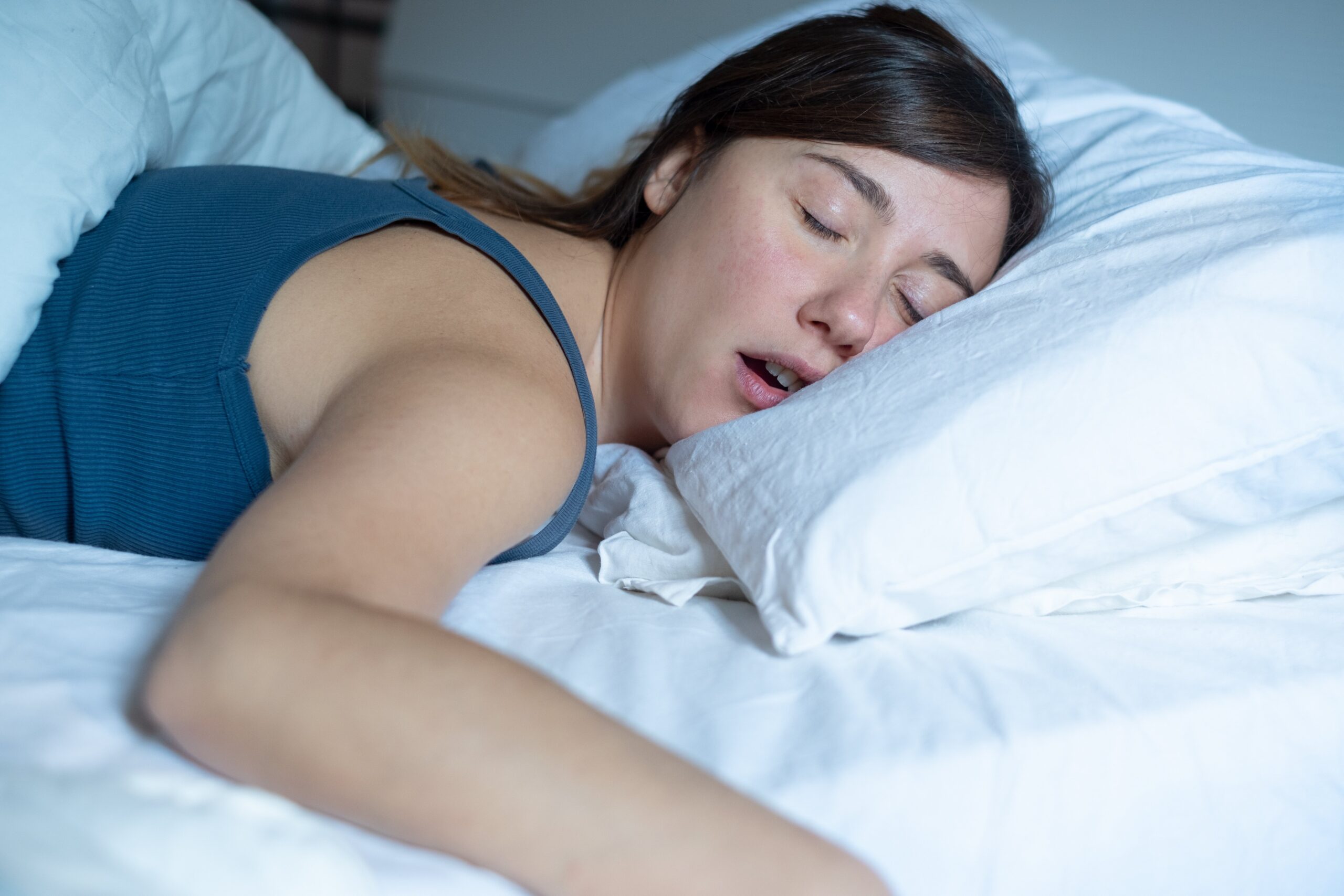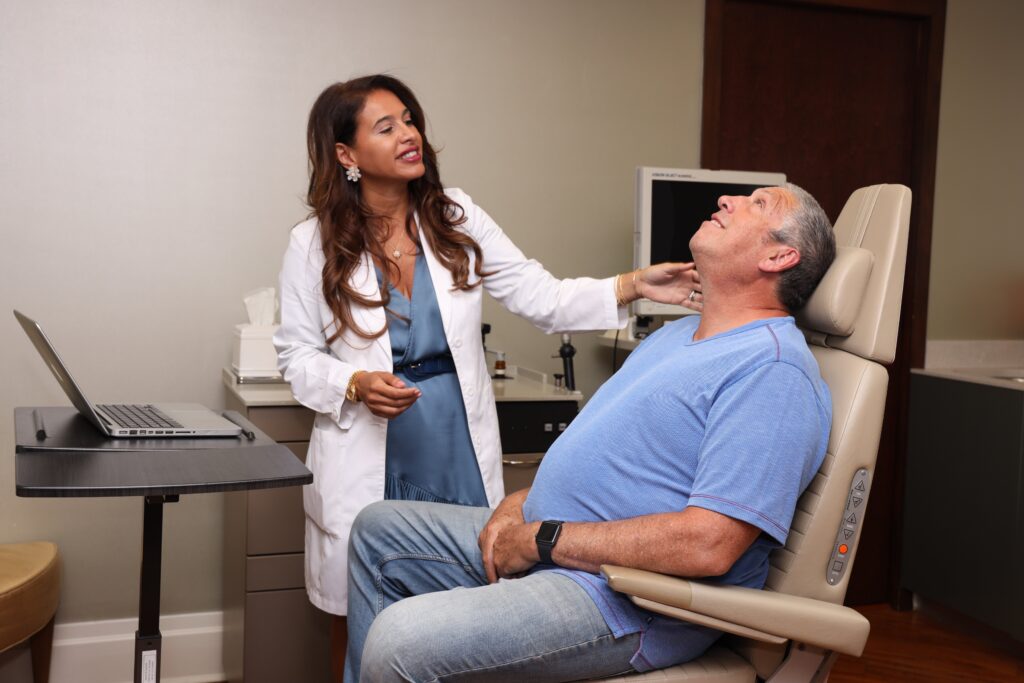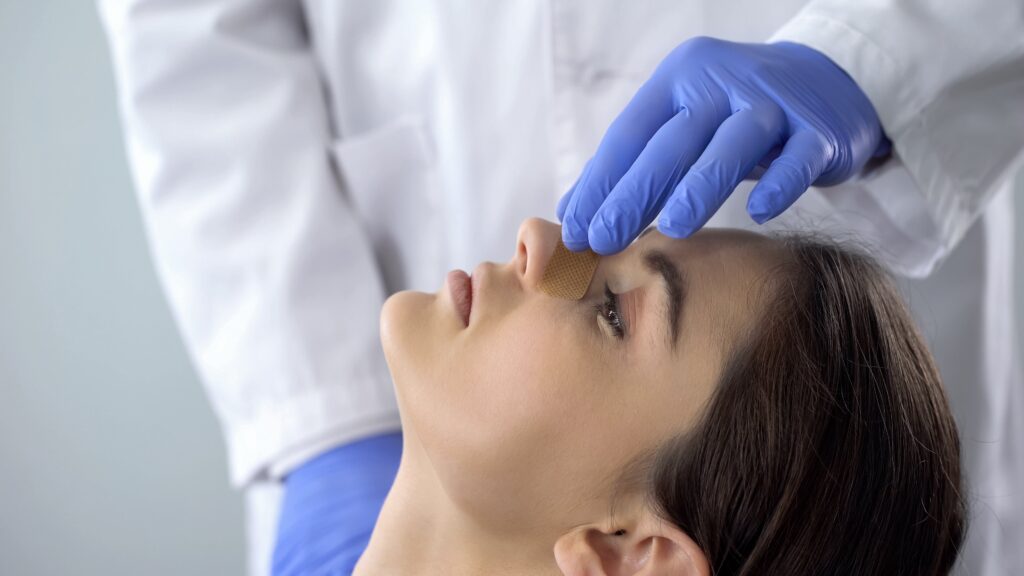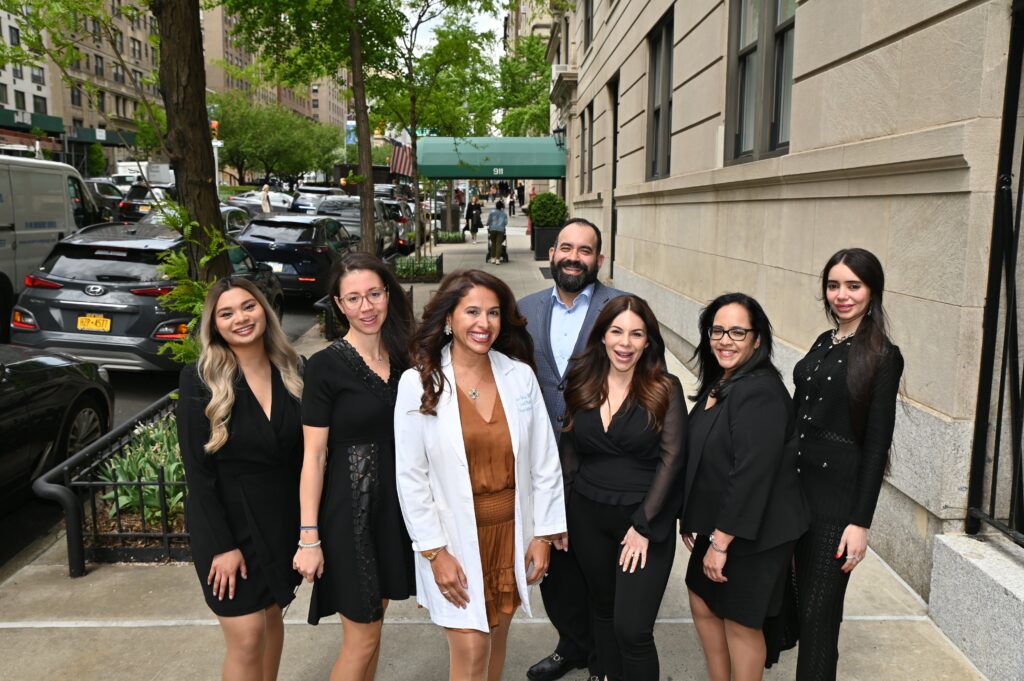The importance of a good night’s sleep can’t be understated. Sleep plays a vital role in your overall physical and mental health, giving your body the opportunity to refresh and rebuild, helping you fight infections, and even managing your weight. For these reasons, sleep apnea can significantly impact your quality of sleep and life. For patients wondering, “Do I need sleep apnea surgery?” the Center of Sinus, Sleep & Facial Plastic Surgery is here to help.
Understanding Sleep Apnea
Sleep apnea is a sleep disorder characterized by pauses or periods of shallow breathing during sleep. Each pause can last from a few seconds to several minutes and may occur 30 more times within an hour. For those suffering from sleep apnea, the lack of oxygen for these lengthy periods can disrupt your sleep cycle and significantly impact your overall health and quality of life.
Sleep Apnea Signs and Symptoms
Excessive Daytime Sleepiness
If you struggle to stay awake or alert during the day despite a full night’s sleep, you may have sleep apnea.
Loud Snoring
Loud or excessive snoring interrupted by pauses in breathing is one of the most common symptoms of the condition, especially for people with Obstructive Sleep Apnea (OSA).
Morning Headaches
Frequently waking up with a headache is another sign of sleep apnea, which can be attributed to low oxygen or fluctuating carbon dioxide levels in the blood throughout the night.
Nighttime Sweating
Excessive sweating during sleep may be a response to the body’s effort to breathe caused by sleep apnea.
Observations from Loved Ones
If your partner or family members notice that you’re frequently stopping breathing for brief periods during sleep, it may be an indication that you have sleep apnea.
Sleep Apnea Treatment Options
Treating sleep apnea is a necessary step toward improving your sleep quality and overall health as well as reducing the risk of associated health conditions. Treatment strategies vary based on the severity of your condition and specific needs, but here are a few sleep apnea treatments that your doctor may suggest.
Lifestyle Changes
Making certain lifestyle adjustments can significantly impact your ability to manage your sleep apnea symptoms. These include:
Weight Loss: Excess weight, especially around the neck, can increase the risk of airway obstruction. Losing weight can reduce the severity of sleep apnea symptoms for some individuals.
Avoiding Alcohol Close to Bedtime: Alcohol relaxes the throat muscles, which can exacerbate airway obstruction and snoring. Limiting alcohol intake can help reduce sleep apnea episodes.
Sleep Position: Sleeping on your side instead of your back can help keep the airway open and reduce sleep apnea symptoms.
Continuous Positive Airway Pressure (CPAP) Therapy
CPAP therapy remains one of the most effective treatments for moderate to severe sleep apnea. A CPAP machine uses a hose and mask to deliver constant and steady air pressure to keep your airway open while you sleep.
Oral Appliances
For those who cannot tolerate CPAP, oral appliances designed to keep the throat open may be another solution. These devices are fitted by a dentist and help advance the position of your jaw or tongue to improve airflow.
Surgical Options for Sleep Apnea
What Is Sleep Apnea Surgery?
For individuals with sleep apnea who have not found relief through CPAP therapy or lifestyle changes, surgical interventions may be the next step. These procedures aim to address the physical obstructions that contribute to sleep apnea, improving airflow during sleep.
Uvulopalatopharyngoplasty (UPPP)
UPPP is a procedure designed to remove excess tissue from the throat to widen the airway. This may include the removal of the tonsils, part of the soft palate, and the uvula, reducing or even eliminating snoring altogether and improving your quality of sleep.
Maxillomandibular Advancement (MMA)
MMA surgery involves moving the jaw forward to enlarge the space behind the tongue and soft palate, reducing airway obstruction. This procedure is considered for patients with severe OSA where specific facial skeletal structures contribute to their condition.
Hypoglossal Nerve Stimulation
This innovative treatment involves implanting a device that stimulates the hypoglossal nerve, which controls tongue movement. The stimulation keeps the tongue in a position that prevents it from blocking the airway during sleep. It’s typically reserved for patients who cannot use CPAP and do not respond to other surgical options.
Nasal Surgery
Procedures such as septoplasty or turbinate reduction can improve airflow through the nose, which can be beneficial for patients whose sleep apnea is exacerbated by nasal obstructions.
Other Procedures
The above treatments have the highest consistent success rates, but Dr. Tadros can also use a number of other procedures to address OSA when necessary, including hyoid myotomy and suspension, advancement genioplasty, tonsillectomy, and hypopharyngeal surgery.
Choosing the right surgical option depends on your specific anatomy, the severity of your sleep apnea, and your overall health. A thorough evaluation by a sleep specialist and a surgeon experienced in sleep apnea surgery, like Dr. Tadros, is essential to determining the most appropriate approach for your needs.
Who is a Good Candidate for Sleep Apnea Surgery?
Finding out if sleep apnea surgery is right for you involves a careful evaluation of several factors. Ideal candidates typically include individuals who:
Have Severe OSA: Those with moderate to severe obstructive sleep apnea, especially if other treatments like CPAP therapy or oral appliances have been ineffective or cannot be tolerated.
Possess Specific Anatomical Features: Patients with physical obstructions or anatomical features contributing to sleep apnea, such as enlarged tonsils, deviated septum, or jaw structure issues, may benefit from surgical interventions.
Are in Good Overall Health: Surgery candidates should be in good health standing to minimize risks associated with surgical procedures.
Get a Sleep Apnea Assessment
The best way to find out if sleep apnea surgery is right for you is to schedule a consultation with Dr. Tadros at the Center for Sinus, Sleep & Facial Plastic Surgery in New York or New Jersey. We’ll evaluate your specific condition and determine the best surgical option for your unique needs so you can breathe easier and sleep better. Call to book your consultation today!




